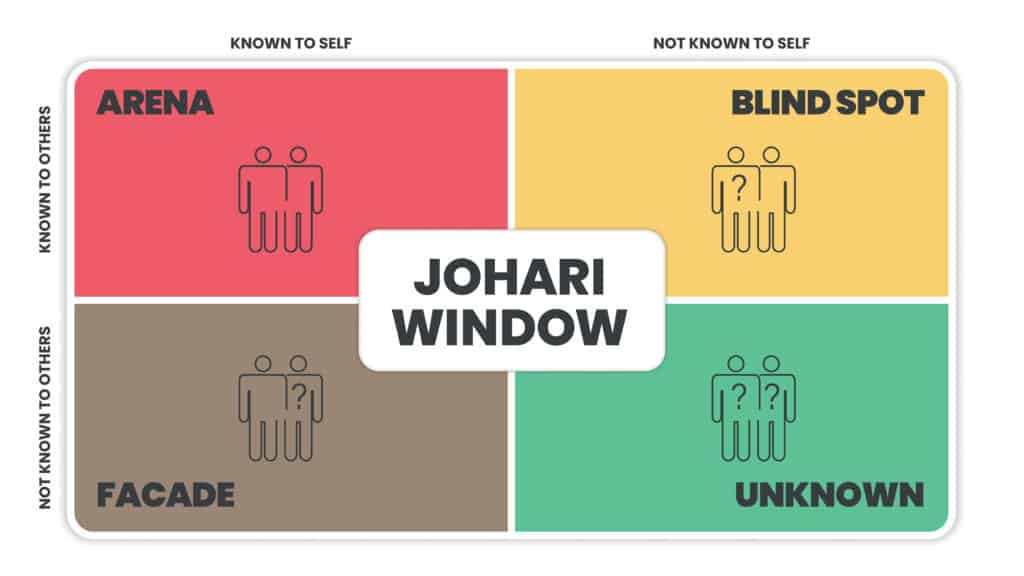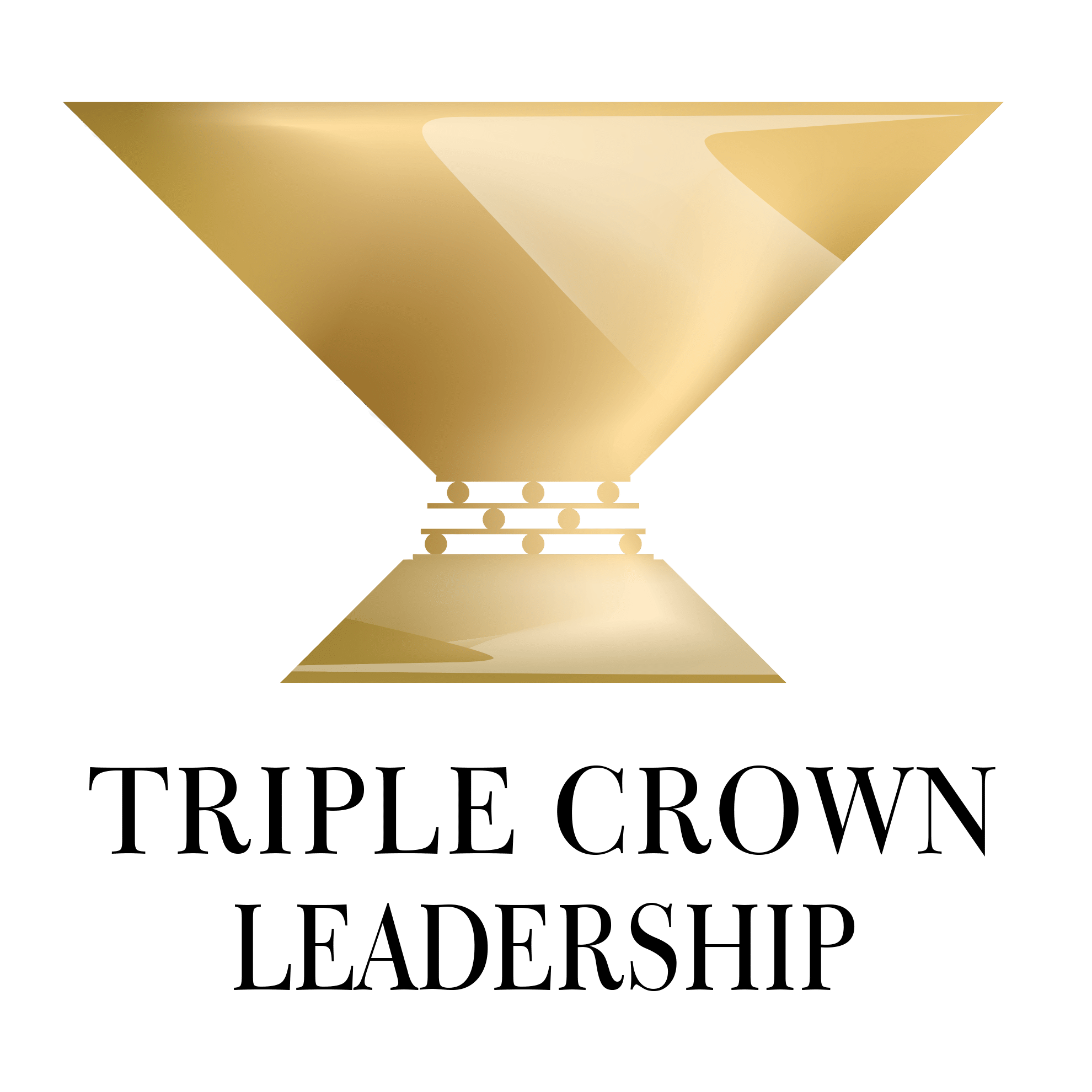How self-aware are you? It’s common for people, including leaders, to overestimate their self-awareness.
Based on multiple investigations with nearly 5,000 participants, organizational psychologist Dr. Tasha Eurich and her colleagues found that “even though most people believe they are self-aware… only 10-15% of the people we studied actually fit the criteria.”
In their survey of 467 U.S. workers across several industries, 32 percent reported working with at least one manager who demonstrated a sweeping lack of insight into how they came across to others. According to the data from Hay Group’s Emotional and Social Competency Inventory, which includes information on the emotional intelligence of more than 17,000 leaders worldwide, only 9 percent exhibit a strong sense of self-awareness.
For leaders (and others), there are many benefits to having high self-awareness. For example, it can help you communicate more effectively, improve your relationships, enhance your sense of personal control, improve your decision-making, boost your confidence, and augment your influence. It can also help you be more authentic and approachable.
“…self-awareness is a predictor of success in leadership.”
-James Kouzes and Barry Posner, A Leader’s Legacy
How to Develop Your Self-Awareness: 18 Approaches
Fortunately, you can develop and deepen your self-awareness. Here are 18 things you can do to elevate your self-awareness:
#1. Engage in frequent self-reflection. Reflect on meetings or other encounters and their emotional wake. Pay attention to what energizes you and what drains you.
#2. Mine your personal history and life story. Understand the experiences that shaped you and the values developed from them. Reflect on your challenges and “crucibles.”
“It may sound easy, but precious few of us mine the chapters of our personal story to inform and enrich our days. Most of us glance fleetingly at our history through a rearview mirror while charging into our future.”
-Christopher Gergen and Gregg Vanourek, LIFE Entrepreneurs: Ordinary People Creating Extraordinary Lives

#3. Discover your personal purpose, core values, vision, strengths, and passions.
These are personal fundamentals that help you understand your deepest convictions and motivations, not to mention your nature.
#4. Take assessments. They can help you not only with your self-awareness but also your overall personal development. For example:
- Quality of Life Assessment
- Traps Test (Common Traps of Living)
- Leadership Derailers Assessment
- Personal Values Exercise
- Strengths Search Assessment
- Passion Probe
- StrengthsFinder 2.0
- Insight Quiz (Dr. Tasha Eurich)
- Sparketype
- Enneagram
- Myers-Briggs Type Indicator

Strengths Search
We all have core strengths–the things in which we most excel. Take this self-assessment to determine your core strengths so you can integrate them more into your life and work.
#5. Ask for input and feedback from family, friends, mentors, and coaches. Solicit honest feedback, not only about your strengths and accomplishments but also about your weaknesses and blind spots. Be on the lookout for developmental areas. Ask your manager or board and your direct reports as well as your colleagues in H.R. and other departments. Seek input from your family and friends.
#6. Get feedback via a 360-degree assessment at least annually. With a 360-degree assessment, you receive confidential, anonymous evaluations from the people around you (i.e., from colleagues and direct reports as well as your manager: the “360” refers to all the degrees in a circle, since you get feedback from all around you). Anonymity is the secret sauce here, because it dramatically reduces the problem of people not giving feedback—or full feedback—because they feel uncomfortable and may fear adverse consequences from doing so. Choose a tool that allows you to get feedback not only from colleagues but also friends and family.
#7. Understand your leadership derailers. Know what inhibits your leadership effectiveness. Common examples include avoidance, burnout, insufficient delegation, insecurity, perfectionism, procrastination, and workaholism. If you don’t know and address them, they’ll keep causing you problems.
#8. Maintain a strong commitment to curiosity, candor, truth, and humility. Recognize that there’s always more to learn. Be eager to learn new things. Remain open to surprises, both pleasant and uncomfortable ones.
#9. Participate in leadership courses and training programs. Especially ones that emphasize self-awareness and emotional intelligence—and that engage you in live cases and real challenges.

Leadership Derailers Assessment
Take this assessment to identify what’s inhibiting your leadership effectiveness. It will help you develop self-awareness and identify ways to improve your leadership.
#10. Work with a leadership coach. A good coach can help you go from where you are now to where you want to go. Coaching can help you identify challenges and work through them. It can help you get unstuck, grow your capacities, and meet your chosen commitments. A big part of the coaching process often entails developing and deepening your self-awareness.
#11. Learn to listen to your inner voice and gut instincts. Continue developing your judgment. Leaders who lack self-awareness have often lost touch with their inner voice.
#12. Start or join a small group. When run well, small groups can facilitate deep conversations about meaningful things. Make sure the conversation includes not only self-reflection but also input from the group. That way, you’ll have a chance to consider new perspectives in a safe environment.
#13. Make time for renewal and sanctuary. Engage in daily restorative activities (e.g., meditation, yoga, or nature walks). Find places or practices of peace that help you guard your heart and get recentered. Without renewal and sanctuary, you’re likely to be too scattered and frazzled to maintain your self-awareness.
#14. Journal. As you journal, reflect on your experiences and feelings. Seek insights and look for patterns. Consider keeping a “trigger journal” as part of your journaling: every time you get upset about something, write down what happened. Think about the causes and look for patterns.

Personal Values Exercise
Complete this exercise to identify your personal values. It will help you develop self-awareness, including clarity about what’s most important to you in life and work, and serve as a safe harbor for you to return to when things are tough.
#15. Meditate. Meditation can help you enhance your self-awareness. By cultivating a regular meditation practice, ideally daily, you can develop a heightened sense of introspection and clarity about your thoughts, emotions, and motivations.
“If you don’t have time to meditate for an hour every day, meditate for two hours.”
-Zen proverb
#16. Reflect on important questions about your leadership and work style. For example, determine whether you learn best by reading or listening. Reflect on how you respond to stress. Consider whether you serve best as a “number one” or “number two” in the chain of command. Gauge your risk tolerance. Think about the ultimate aims of your leadership.
#17. “Name Those Feelings.” Think about something that summoned strong emotions recently and describe the feelings you had. Did you feel it a certain part of your body? Consider why you felt that way.*
#18. Consider not only what you know about yourself but also what others know about you. For this, check out the Johari Window, a framework that can help you identify what’s known to yourself and what’s known to others about you. How many people get to see your true self? Do you have blind spots—things that are known by others about you that you’re not aware of? Consider writing down ten words that describe your main characteristics. Then have people who know you well do the same for you. Compare the lists to see how much overlap there is (or isn’t).

Final Thoughts
There you have it: 18 approaches for developing your self-awareness. Start with just a couple that most appeal to you (ideally including the 360-degree assessment) and work from there. Remember: developing your self-awareness can dramatically improve your leadership.
In their book, True North: Emerging Leader Edition, authors Bill George and Zach Clayton liken the process of developing self-awareness to peeling back the layers of an onion, including our strengths, weaknesses, shadow sides, motivations, needs, leadership style, and more.
Build these approaches into your leadership quest. If you do, it will serve you and your colleagues very well.
“‘Know thyself’… is still the most difficult task any of us faces. But until you truly know yourself, strengths and weaknesses, know what you want to do and why you want to do it, you cannot succeed in any but the most superficial sense of the word.”
-Warren Bennis, On Becoming a Leader
Tools for You
- Leadership Derailers Assessment to help you identify what’s inhibiting your leadership effectiveness
- Personal Values Exercise to help you determine and clarify what’s most important to you
- Strengths Search to help you identify your core strengths and integrate them into your life and work

Strengths Search
We all have core strengths–the things in which we most excel. Take this self-assessment to determine your core strengths so you can integrate them more into your life and work.
Related Resources
- “What Happens When Leaders Lack Self-Awareness”
- “How Self-Awareness an Elevate Leadership”
- “Why Self-Awareness Can Be Hard for Leaders”
- “Why Self-Awareness Is So Important—And How to Develop It”
- “Self-Deception: Why We Do It and How to Stop It”
- Tasha Eurich, “What Self-Awareness Really Is (And How to Cultivate It),” Harvard Business Review, January 4, 2018
- Tasha Eurich, Insight: The Surprising Truth about How Others See Us, How We See Ourselves, and Why the Answers Matter More than We Think
- Tasha Eurich, “Increase Your Self-Awareness with One Simple Fix,” TEDx Mile High
Postscript: Quotations on Self-Awareness and Leadership
- “Knowing yourself is the beginning of all wisdom.” -Aristotle, ancient Greek philosopher
- “All serious leadership starts within…. The quest for leadership… is first an inner quest to discover who you are.” -James Kouzes and Barry Posner, A Leader’s Legacy
- “Improving one’s self-awareness will not happen by accident…. This kind of learning requires adopting a commitment to mindfulness: becoming consciously attuned to oneself, others, and the environment.” -Annie McKee, Richard Boyatzis, and Frances Johnston, Becoming a Resonant Leader
- “Self-awareness is the foundation of authenticity. You develop it by exploring your life story and your crucible, and by understanding how these experiences shape you as a person and leader. You enhance it as you seek honest feedback from others. You refine it by adopting practices that help you remain mindful and aware, even amidst life’s chaos.” -Bill George and Zach Clayton, True North: Emerging Leader Edition
- “Self-knowledge is best learned, not by contemplation, but by action. Strive to do your duty and you will soon discover of what stuff you are made.” -Johann Wolfgang von Goethe, German writer, poet, scientist, and statesman
- “In my experience, the people who have achieved the greatest understanding of their inner selves have been ‘reflective practitioners’—those who have welcomed a wide array of experiences, have read history and biographies with care, and have had a series of conversations with their inner selves, exploring ways to build that foundation.” -David Gergen, Hearts Touched with Fire: How Great Leaders Are Made
* Source: Annie McKee, Richard Boyatzis, and Frances Johnston, Becoming a Resonant Leader.

Triple Crown Leadership Newsletter
Join our community. Sign up now and get our monthly inspirations (new articles, announcements, opportunities, resources, and more). Welcome!
+++++++++++++++++++++++
Gregg Vanourek is a writer, teacher, and TEDx speaker on personal development and leadership. He is co-author of three books, including Triple Crown Leadership: Building Excellent, Ethical, and Enduring Organizations (a winner of the International Book Awards written with his father, Bob Vanourek) and LIFE Entrepreneurs: Ordinary People Creating Extraordinary Lives. Check out their Leadership Derailers Assessment or get their monthly newsletter. If you found value in this, please forward it to a friend. Every little bit helps!


